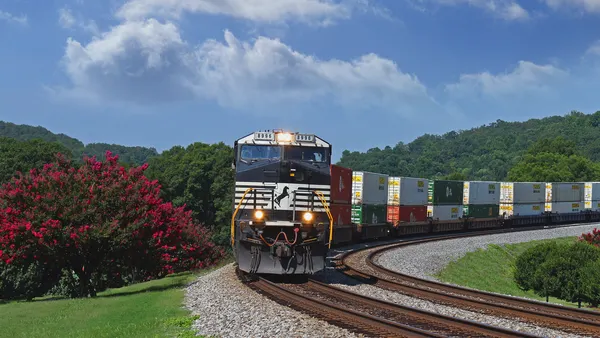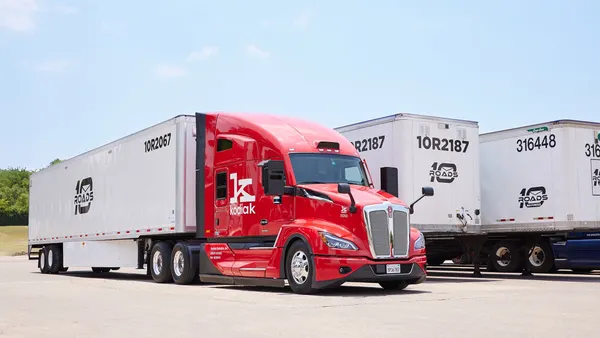Dive Brief:
- Roadrunner Transportation Systems is selling its flatbed business for $30 million in cash, the company announced Monday in a press release, which did not include information on the buyer.
- The flatbed business is called D&E Transport and works with the industrial, agricultural and general freight markets. It had $50 million in revenue for the 12 months ending Sept. 30, 2019, according to Roadrunner.
- Roadrunner CEO Curt Stoelting said in a statement the sale was "another step forward in our strategy to simplify our portfolio by focusing on our value-added logistics and asset-light LTL segments."
Dive Insight:
This news comes a month after Roadrunner announced the sale of its Intermodal Services business to Universal Logistics Holdings for $51.25 million in cash, and two months after the downsizing of its dry van business, which included 450 layoffs. Executives said on the company's earnings call last month that they are still actively looking for opportunities to divest assets.
Roadrunner's flatbed fleet accounted for 12% of the business' year-to-date over the road revenue, according to the company's third-quarter earnings. The flatbed segment saw earnings growth in the second quarter, Stoelting said on a call with analysts in August, but this was offset by declines in other parts of the business. It's not immediately clear why Roadrunner decided to sell a segment that had seen recent growth.
An official with D&E Transport was unable to provide further details on its new owner Tuesday when contacted by Supply Chain Dive. A spokesperson for Roadrunner said the company "is not disclosing the name of the buyer," in an email to Supply Chain Dive.
Stoelting said last month the strategy of asset sales will allow the company to focus on improving "operating performance, increase our returns on invested capital, and add significant value-creation opportunities."
Roadrunner is looking to sell off assets at a time when the market is flooded with trucks, pulling down rates for carriers. Running a more asset-light business could allow it to "deliver a better return on assets, lower profit volatility, [achieve] greater flexibility, and higher scale-driven cost savings than asset-heavy models," according to a Boston Consulting Group analysis of asset-light businesses.
Lower profit volatility is something all carriers are likely looking for, especially in the 2019 trucking market, which just saw one of the largest failures of all time with the bankruptcy and closure of Celadon this month.














